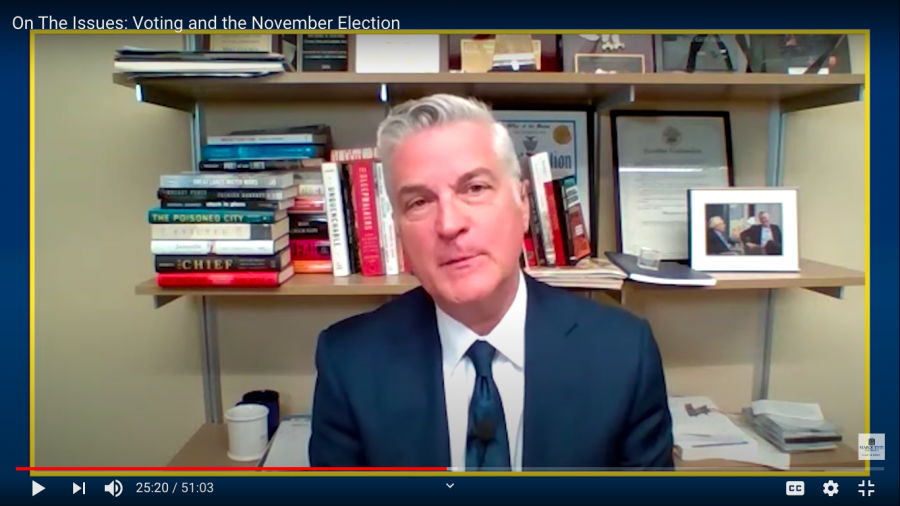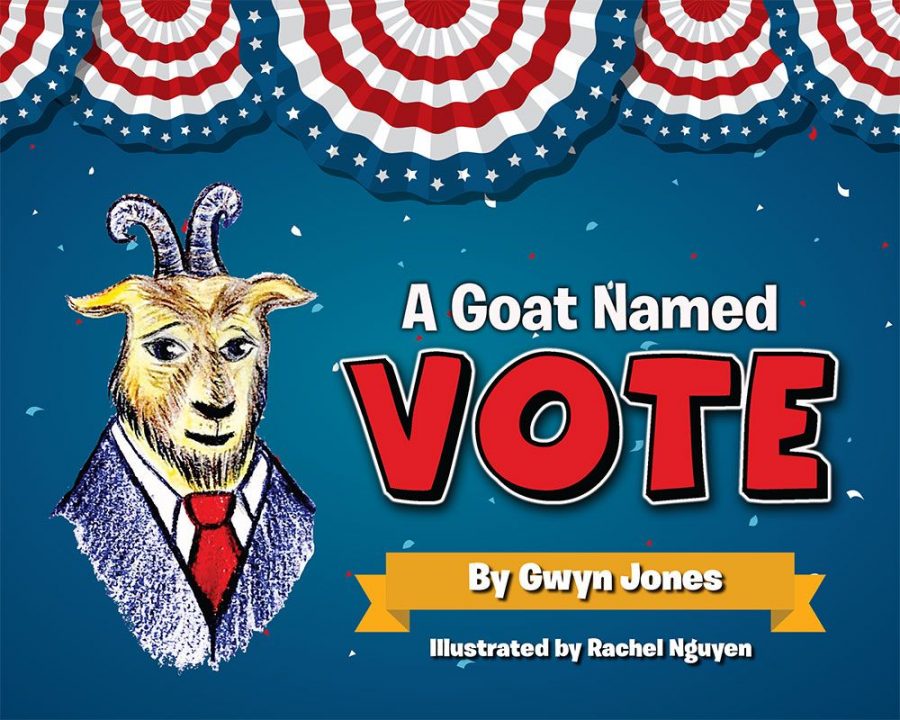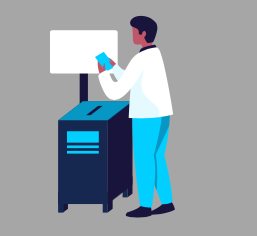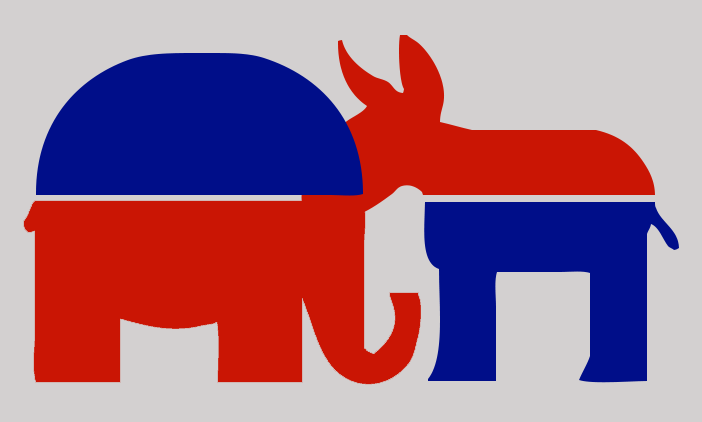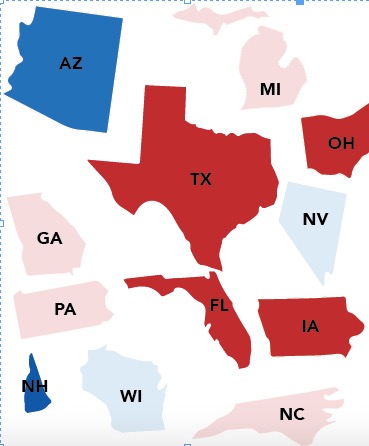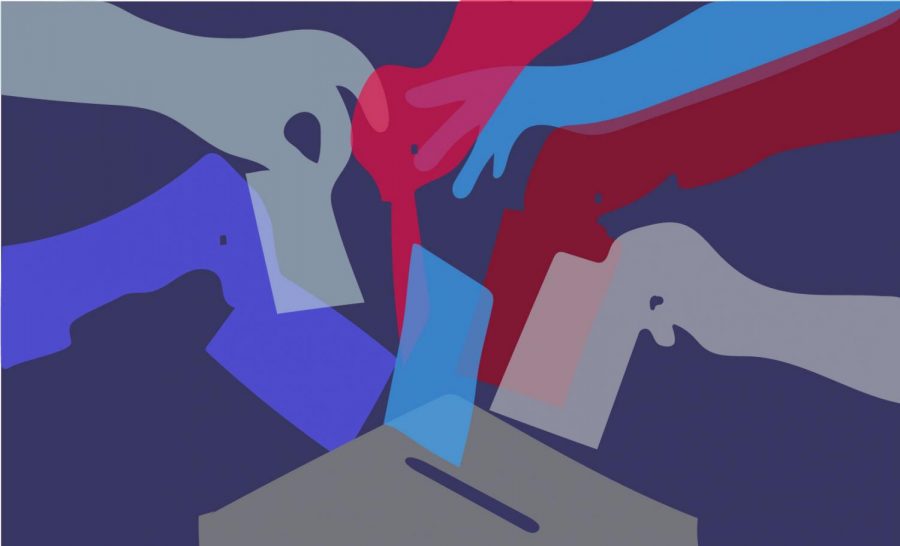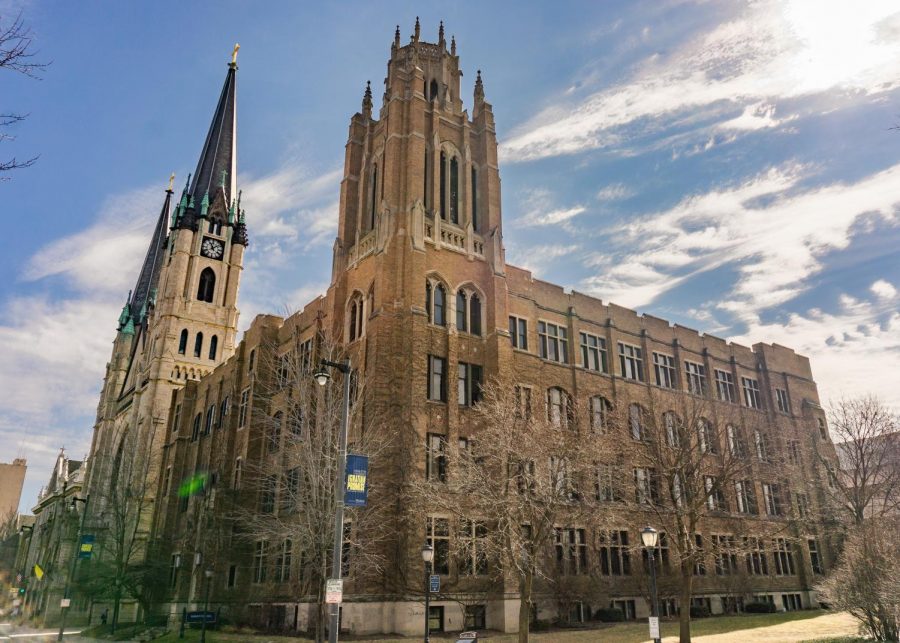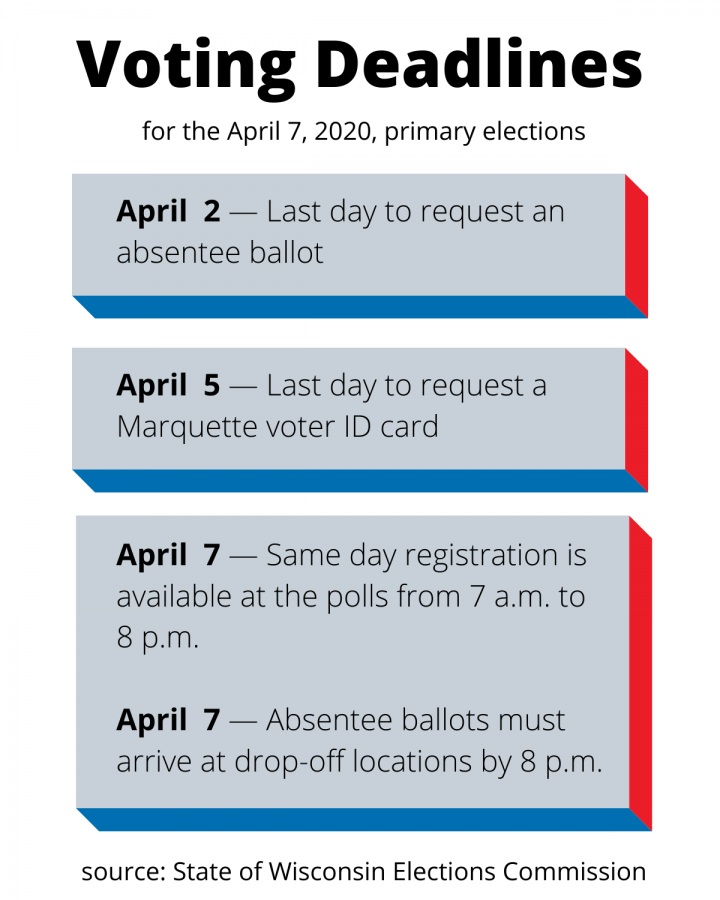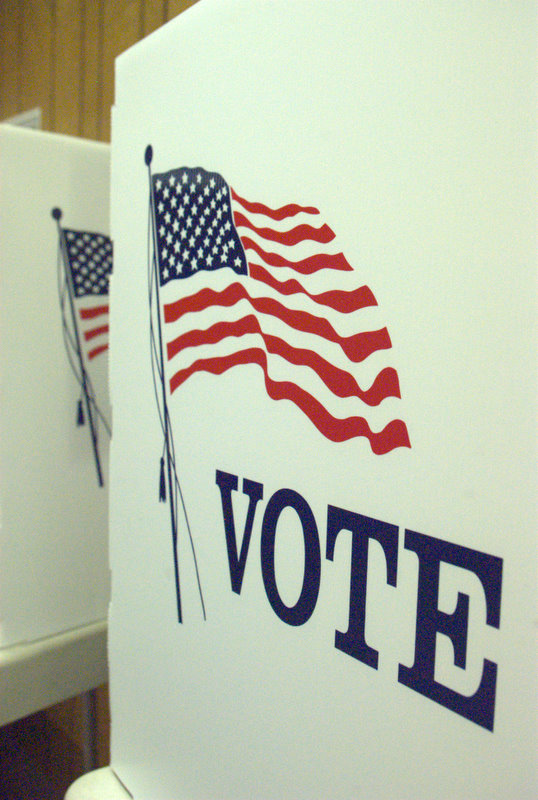The Lubar Center hosted a conversation with election officials Sept. 16, hosted by Mike Gousha, distinguished fellow in law and public policy at Marquette University Law School, to discuss the upcoming election and the impact of the pandemic on voting. The featured speakers were Meagan Wolfe, a Wisconsin Elections Commission administrator, Claire Woodall-Vogg, Milwaukee Election Commission executive director and Kelly Michaels, Brookfield city clerk.
The discussion focused on the effects of the COVID-19 pandemic on voting in the coming election, specifically with absentee ballots.
“We’re in a kind of different world,” Gousha said. “I think people over time have grown used to having elects winners and losers declared at some point in the late evening, even national elections oftentimes.”
However, Gousha said that the number of absentee ballots this year will cause delays that some people might not expect.
“Are we entering a different phase now?” he said. “Because of the change in voter behavior we’re going to have to expect that counting the votes is simply going to take a little bit more time.”
Wolfe said that the number of mail-in ballots is large, but that clerks have started to prepare labels for absentee ballots and to make sure every ballot is tracked in the statewide system.
“It’s a volume that’s much different than what we’ve seen in the past,” she said. “I think we reached the million mark over the weekend and that number continues to grow each day.”
However, Wolfe said that the April election gave her team time to re-examine how the November election will look. In April, a judge had to allow more time for voters to return their absentee ballots, and many of the city’s polling places were closed due to lack of poll workers.
“Now things look a little different than we thought they would and I think that the April election allowed us to really take a deep look at what this new volume of absentee ballots would require of us and require of our systems,” Wolfe said. “We really did a deep analysis of that.”
She also said that Wisconsin voters have made it clear they want to know what is going on in the coming election.
“We’ve heard loud and clear from Wisconsin voters that they don’t want us to just tell them we’re ready,” Wolfe said. “They want to see how and so we went into detail about … things we are doing in terms of program areas to make sure that the state of Wisconsin is ready to handle the November 3 election at the local level.”
She said one thing she has to emphasize is that the election results might not come on election night, but that the official results are never released on election night.
“One of the things that I think is incredibly important to this conversation is we’ve never had the official results of an election on election night,” Wolfe said. “The certification of an election can take up to a month because of the three levels of certification that have to happen before those results are final.”
She said that election results have to be certified on a municipal, county and state level before results are official.
“Those election night results that you see are always unofficial, they’re actually not even an aggregate that comes from the state level,” Wolfe said. “Those are some of the unofficial results that are coming from each of the individual polling places and then the media does that aggregation to produce those unofficial result sets.”
Woodall-Vogg, who has worked polling locations in Milwaukee, said that counting ballots, such as for in-person absentee voting in the past, takes a long time. She said that she has sometimes seen long days become 24-hour days to process the number of ballots.
“We have very precise procedures and i think that it’s important that voters understand that and we will be doing our best to kind of pull back the curtain so that voters see what it takes to process an absentee ballot,” she said.
She said that she is not anticipating having results by 9 or 10 p.m. on election night.
“I’m hopeful that by the time the sun comes up on November 4 that we will be finished and have election results, but it’s definitely a concern and the city of Milwaukee has been working with all of the tools that we have within our means to improve processes and procedures.” Woodall-Vogg said.
Michaels said that a vendor for higher speed tabulators moved Wisconsin clerks up its customer list because, in the company’s multi-state system, it realized that Wisconsin had the least time to process ballots and thus needed the higher speed machine more than states that allow more time for absentee ballots to be counted.
“We still only have 13 hours to process them and I think that’s where we’re going to fall down a little bit and we’re going to learn some lessons because other states have more time to process all of those absentee ballots,” she said.
Michaels also said that, since the process is based heavily on manual labor, it takes more time for Wisconsin to count ballots because other states have introduced faster processes and technologies.
“They’re processing at such a larger speed and rate than we’ll ever be able to do just because we need legislation to allow us more time and we also need experience going forward to see what technology we need to do a better job and I think those are the lessons we’re going to learn here,” Michaels said.
She said that the Wisconsin’s ballot counting system makes the process long and difficult and that she hopes this will change for the future.
“I think that we’re going to learn some more lessons especially on the back end because i think our focus has been on the front end where we collectively as a state could do more,” Michaels said. “Legislatively-wise we haven’t been given the tools to help on the back end so we’re going to get all of these absentee ballots.”
Woodall-Vogg said that Milwaukee has 15 locations for in-person early voting, including Fiserv Forum, which will allow for social distancing for those wishing to vote in-person. She also said that there will be drive-through locations, such as Miller Park, and secure places to drop off absentee ballots even until 8 p.m. on election night.
“As election administrators we’re always focused on the solution and the next steps and looking forward,” Wolfe said. “With the unprecedented volume of absentee ballot requests that’s a task that’s going to take a lot longer for this election than it has in previous months.”
This story was written by Shir Bloch. She can be reached at [email protected].

